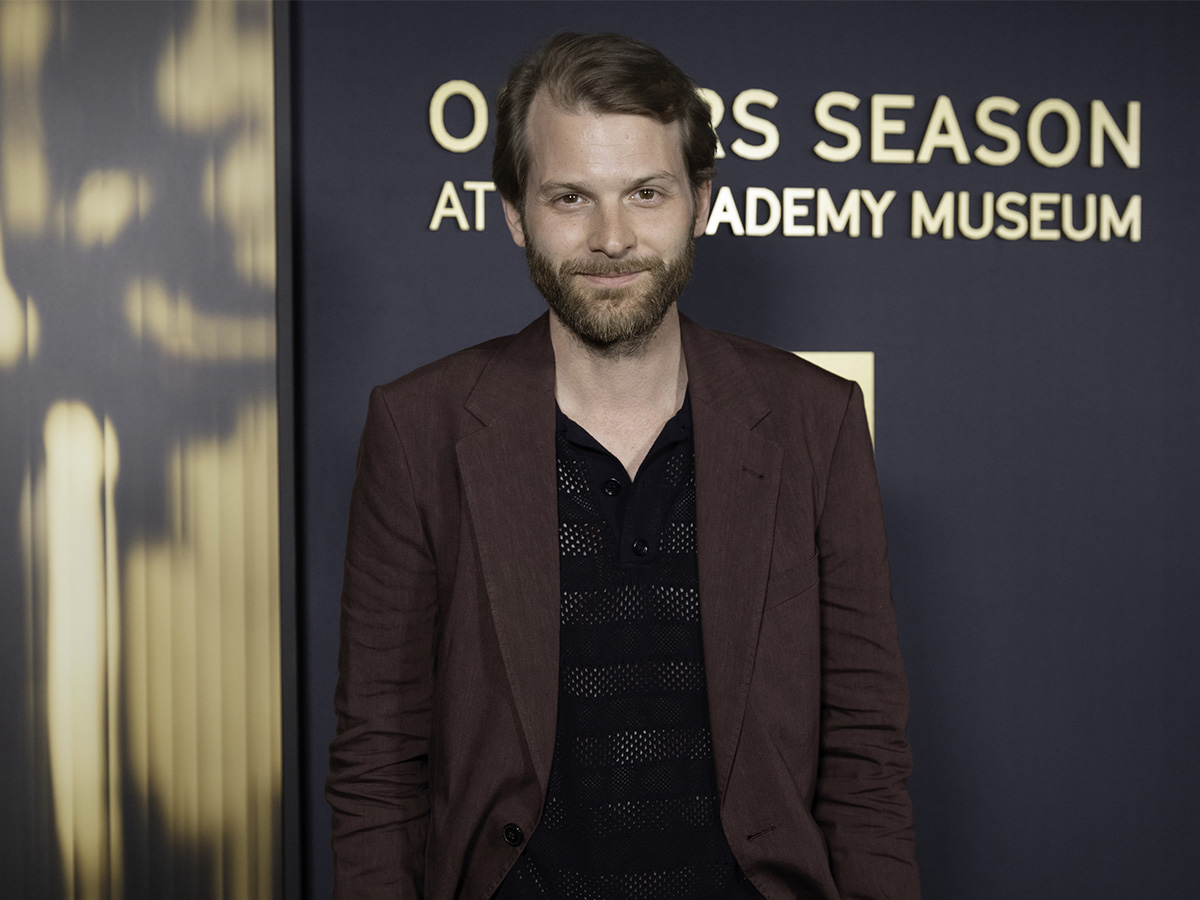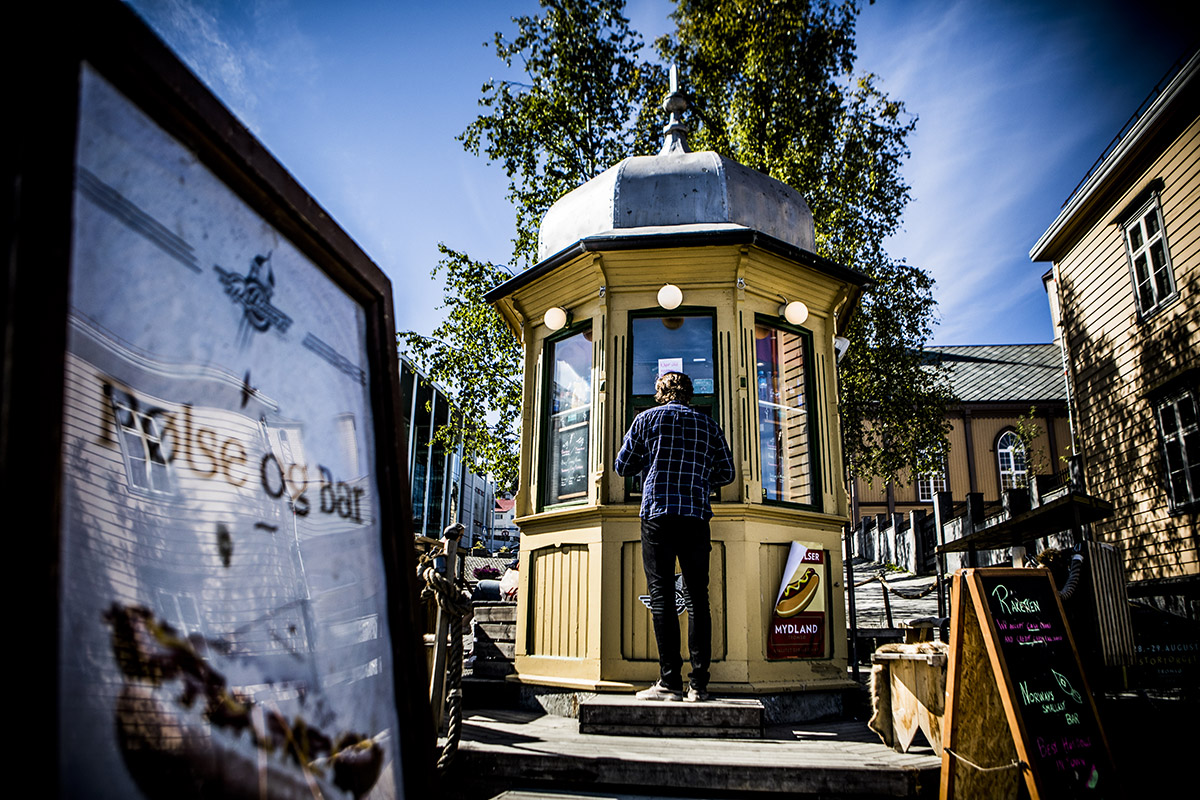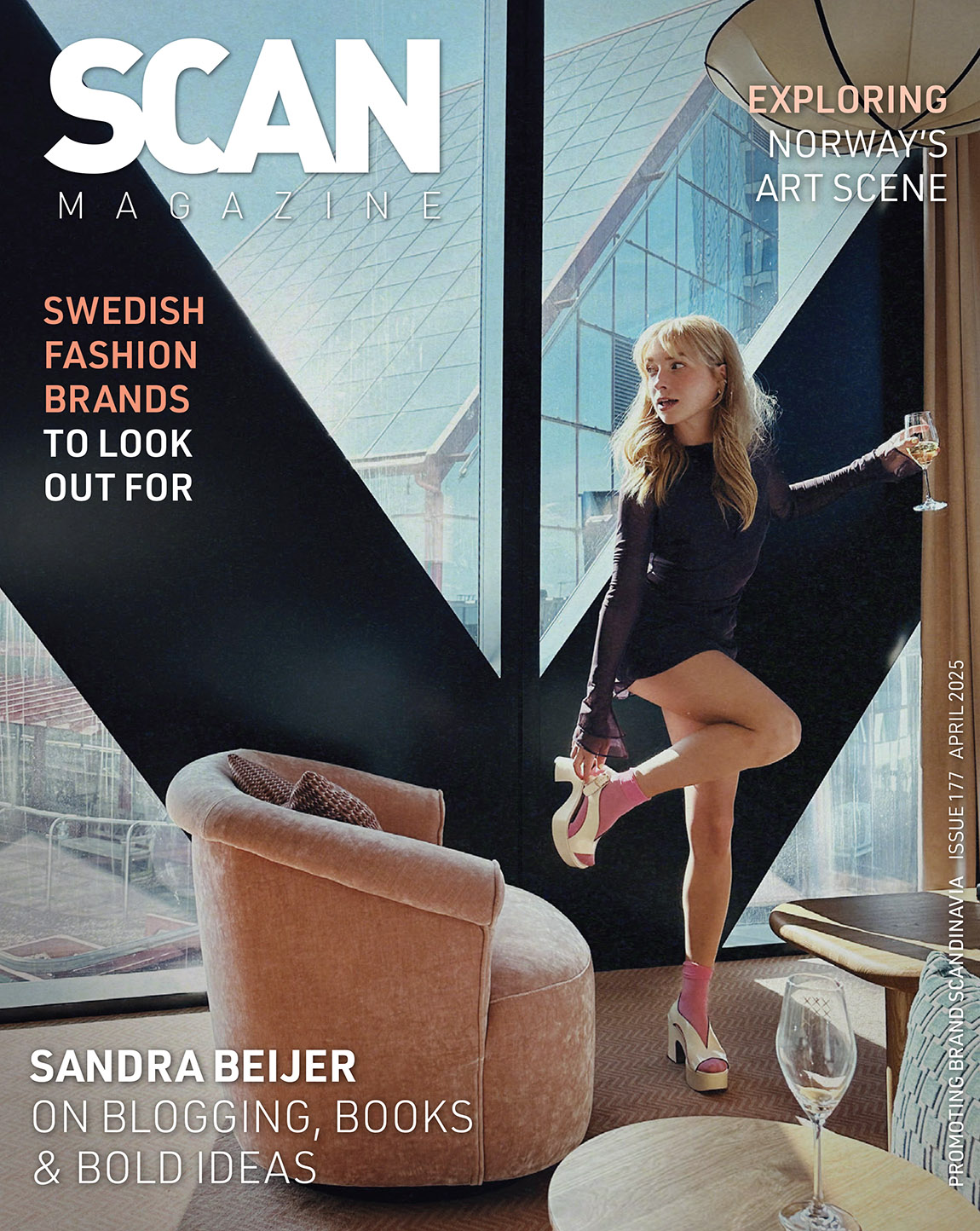Finding success by breaking the rules: Robert Wells on how to make it in music
By Joy Sable | Photos: RIR events
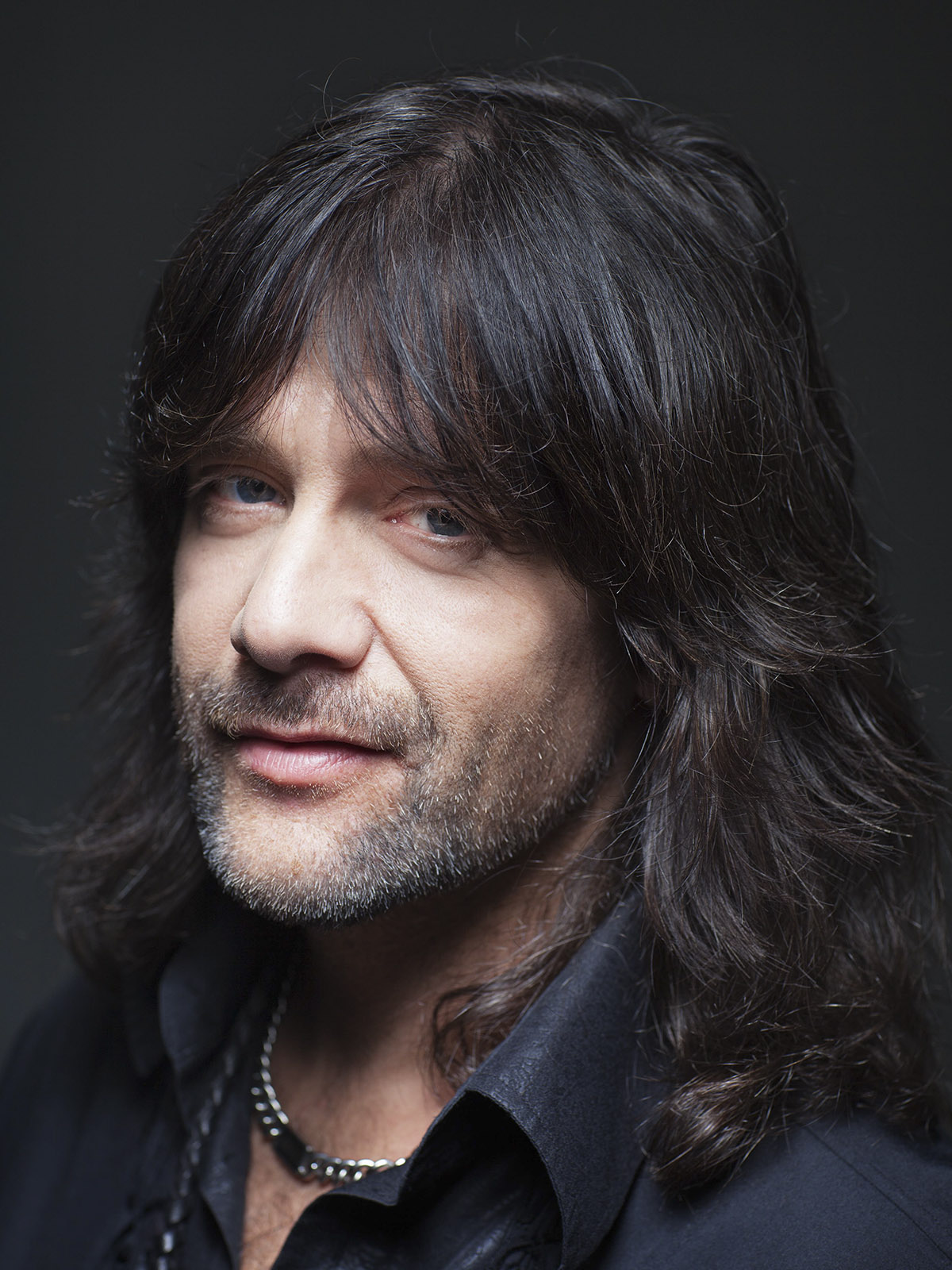
Of all the exciting music venues in the world, the Great Wall of China might not be the first to spring to mind. Yet this amazing landmark is just one of the extraordinary places where Robert Wells has played his piano. The Stockholm-born musician has an international following – particularly in China – and he has spent a lifetime bringing music to the masses, revitalising the classics with his unique modern twist. His popular Rhapsody in Rock concerts combine the beauty of classical melodies with the energy of rock and boogie-woogie.
Wells’ love of music started young, even though there were no professional musicians in the family. As his parents had divorced while he was still a baby, he spent much of his childhood with his grandmother. “We started to play on the piano when I was four,” he says.
By the time he was seven and had taken up piano lessons, he knew music would be his life. “My first piano teacher – she was the best. She took me under her wing and we had nearly two hours of lessons every week. After the lessons, we played vinyl records by Arthur Rubinstein and other classical artists. That was the best time for me,” he recalls.
A clash of tastes
His prodigious talent apparent from an early age, he attended the Royal Swedish Academy of Music, taking classes after school. “The problem I had was that I already loved boogie-woogie, jazz, pop like Elton John, Status Quo and, of course, ABBA. I had to hide my ABBA sheet music from my teacher! ABBA was the worst thing you could play, back in the ‘70s.”
At 16, Wells was living by himself in Stockholm and playing with bands in pubs in his spare time, whilst working hard at his classical studies. “When my piano professor at the Academy found out that I played pop and jazz too, she was furious, so I had to change professors after the first year. That’s when I realised that you can’t force anyone what to think about music, it must come from your heart.”
It wasn’t snobbery that he encountered at the Academy, but a lack of understanding of other music genres. “They didn’t know anything about pop and rock. It’s so easy to disregard things you don’t like,” he explains. “It’s sad because you miss so many things in music if you are just into one style.”
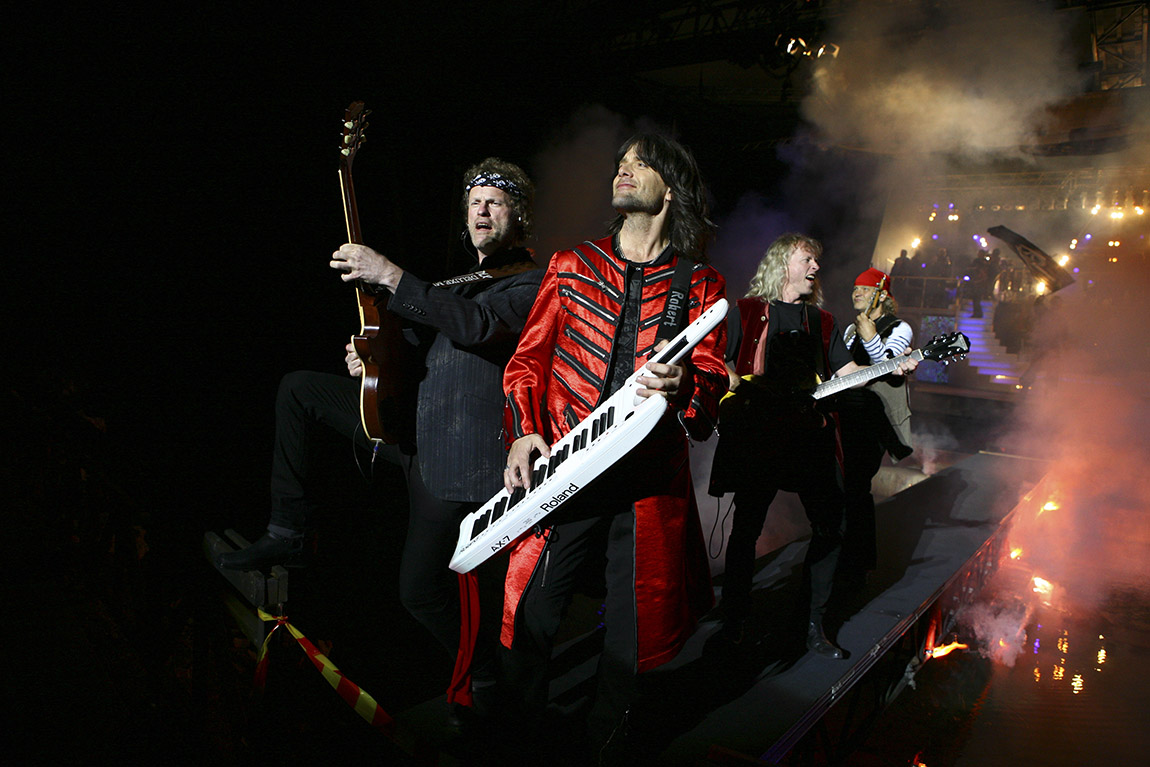
Rhapsody Ensemble.
Gambling on rock
Though he was entranced by the classical concerts he attended at the Stockholms Konserthus, he felt something was missing. “I loved every second, but I thought the package was so boring and snobbish. I thought ‘I have to do something when I get older’ – and that’s how Rhapsody in Rock came up.”
Rhapsody in Rock was first performed in 1989. It was a huge gamble for Wells. “I came from a pop career and we played rock clubs, but my dream was to do my Rhapsody, so I rented a big symphony orchestra and we went out to the north of Stockholm. There were 67 on stage but there were only 80 in the audience! If I was a normal person, I would have told myself to quit. Instead, I said to myself ‘it will take time, but it will happen’. And it did.”
Wells has seen his share of career-highs – aside from playing atop the Great Wall of China. He composed the official television theme music for the 2008 Beijing Olympics and has played in venues as diverse as ice hockey arenas and London’s Royal Albert Hall. He even played on the 2010 Belarusian entry to the Eurovision Song Contest – a ballad during which, in a typical display of Eurovision excess, the singers morphed into giant butterflies during the final chorus.
“I was really proud to perform Rhapsody in Rock at the Royal Albert Hall in 2001. That was a huge production. I must admit, I was so nervous because when you walk out of your dressing room, you see all the pictures of the famous stars who have been there before! But it was fun.”
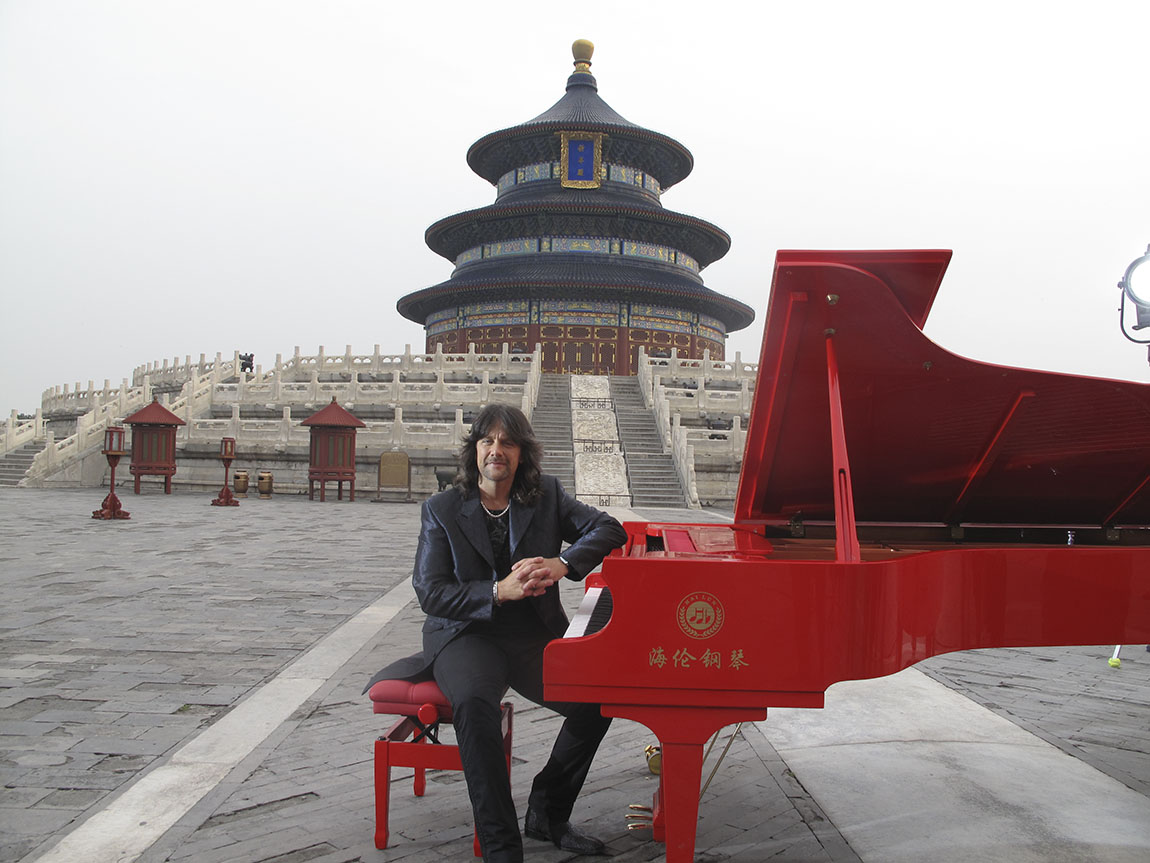
Wells Temple Of Heaven.
“Listen and learn”
Ten years ago, Wells received H.M The King’s Medal for his services to the music industry and for his entrepreneurial work. He has played for the Swedish Royal Family on numerous occasions and this year he received the Stockholm Culture Award. Eager to give something back to the next generation, he has, for the past 12 years, held music camps every summer for youngsters with musical talent.
“I’m pretty hard. I tell them, if you want to be in my camp, you practice, but don’t practice for me – I don’t care – if you want to practice, it is for your own good. If you really don’t want to work professionally, then you don’t have to. You don’t know how many parents hate me! I always tell them, stop pushing your child. Nobody pushed me when I was a kid.”
For children who want to pursue a career in music, he has some sound advice: “Listen to your own voice and do exactly what you want to do. When you work together with other people, the most important thing is not to be interesting, but to be interested in others. Listen and learn.”

Final Dalhalla 2021. Photo: Ulf Stjernbo
Subscribe to Our Newsletter
Receive our monthly newsletter by email


